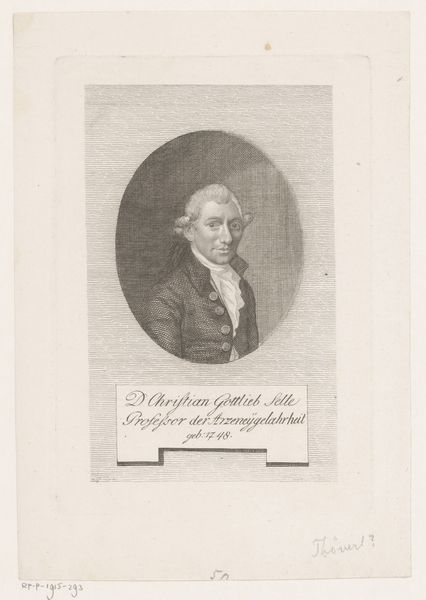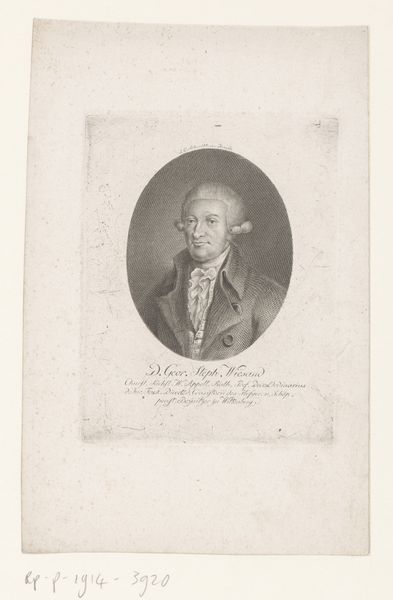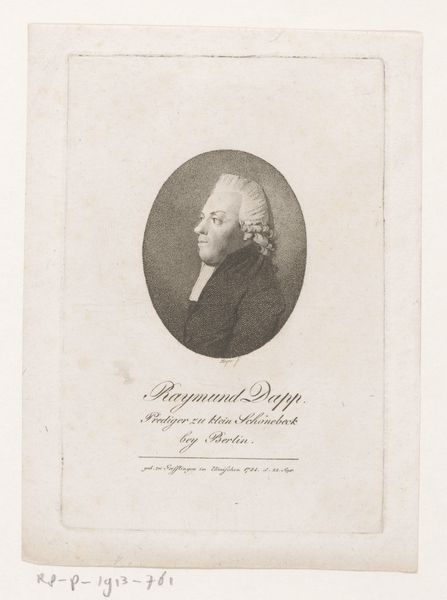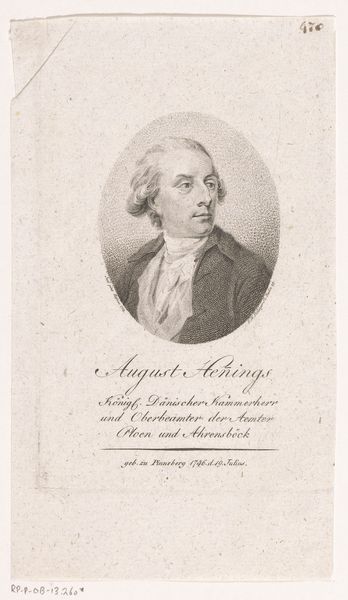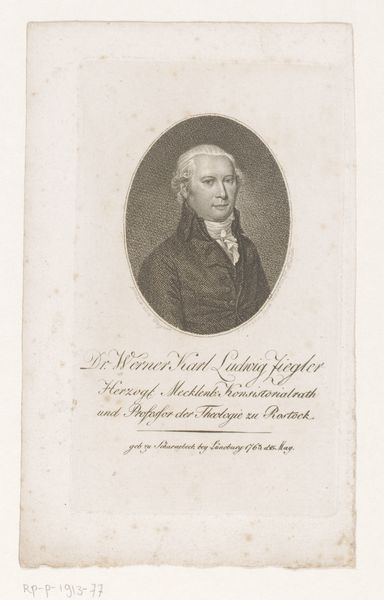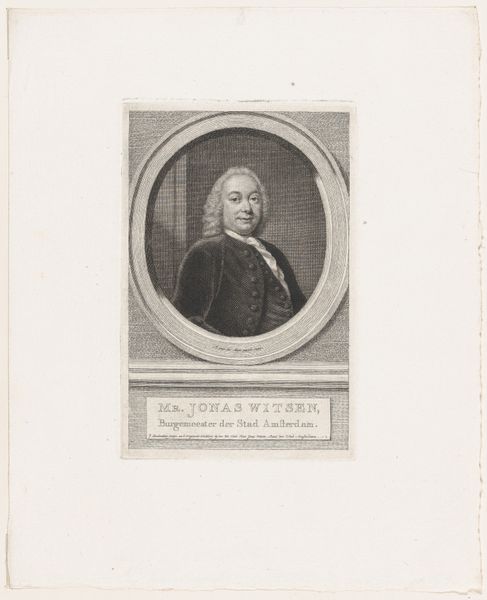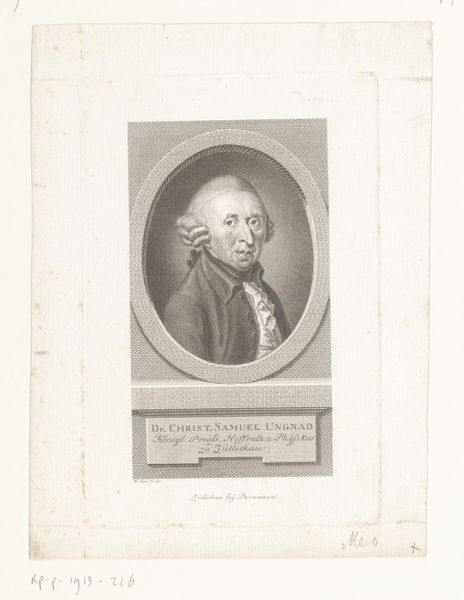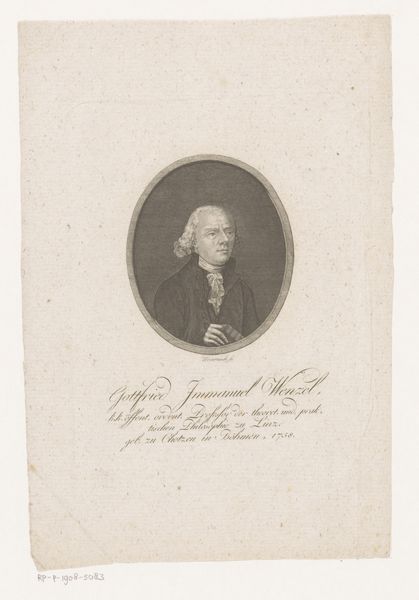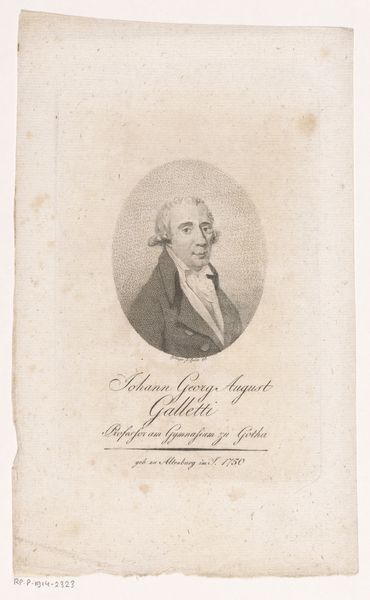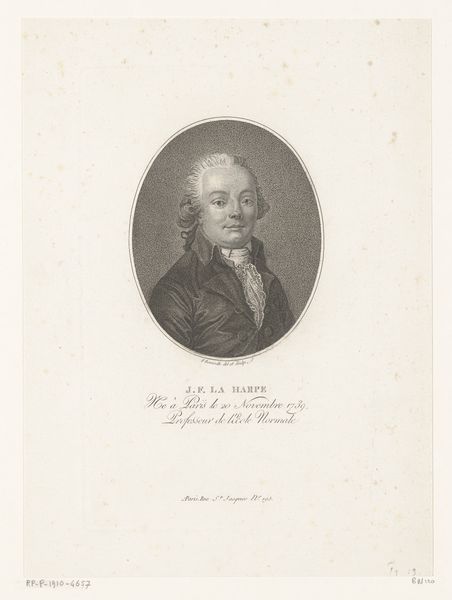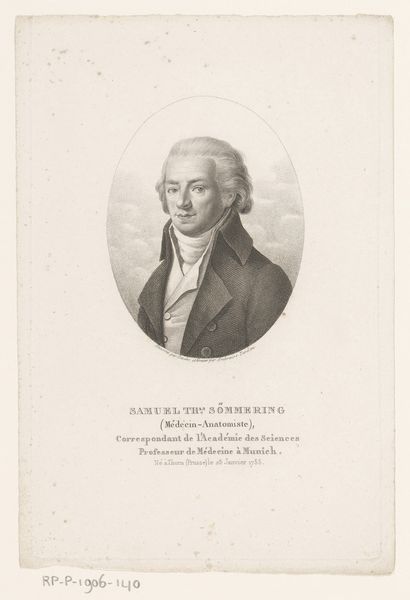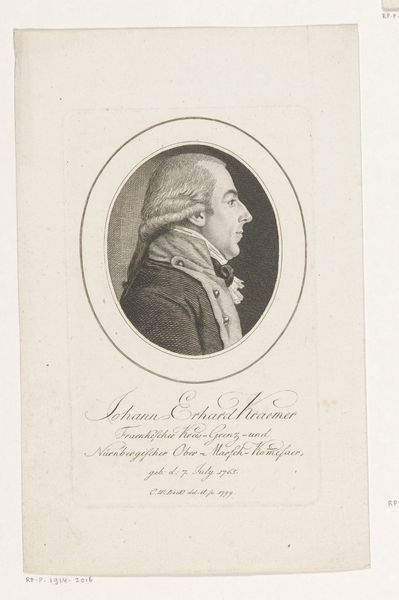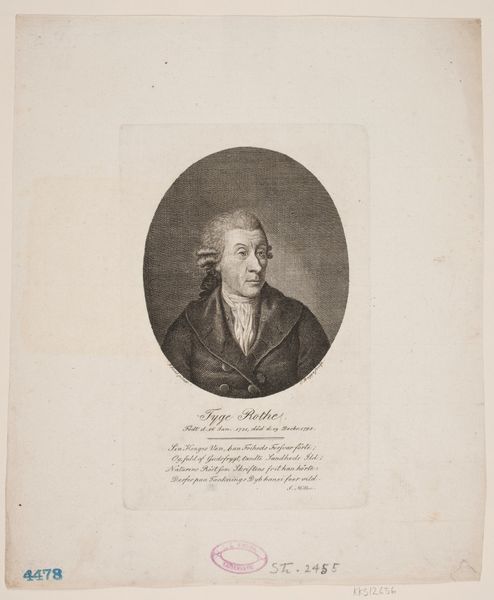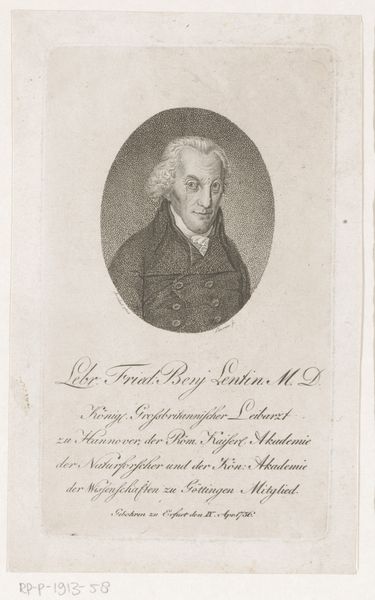
drawing, print, paper, engraving
portrait
pencil drawn
drawing
figuration
paper
line
history-painting
academic-art
engraving
realism
Dimensions: height 164 mm, width 108 mm
Copyright: Rijks Museum: Open Domain
This print of Johann Christian Engel was created by Johann Daniel Laurenz the Younger in the late 18th or early 19th century. It's an engraving, a process that involves carefully incising lines into a metal plate, applying ink, and then pressing the plate onto paper. Engraving was the mechanical reproduction process *par excellence* of its day. It allowed images to be reproduced and disseminated widely, fulfilling the growing demand for visual content. Look closely, and you’ll notice that the crispness of the engraved lines lends a particular formality to the portrait. It captures the sitter's likeness, but also something of his status. Note the beautifully rendered details of his jacket. This is a portrait of a man of consequence. The act of engraving itself demanded precision and skill, reflecting a cultural appreciation for craftsmanship but also the commercialization of art production. By understanding the techniques and materials used, we gain insights into the economies of art and representation in the late 1700s.
Comments
No comments
Be the first to comment and join the conversation on the ultimate creative platform.
